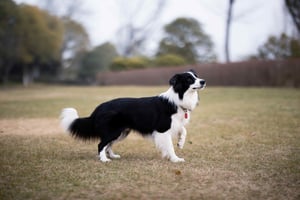Owning a puppy is a joyous experience, but it can also be a challenging one. If your 4 day old...
9 Week Puppy Training: The Basics You Need to Know
Are you a new puppy parent wanting to know the basics of 9 week puppy training? This article will provide you with an overview of the key principles of training a 9 week old puppy. We’ll look at the importance of socialisation, crate training, potty training and basic commands. By the end of the article, you’ll have the tools you need to get started on your 9 week puppy training journey.
Socialisation
Socialisation is an important part of 9 week puppy training. Socialisation teaches your puppy how to interact with other animals and people, which is key for avoiding behavioural issues down the line. To socialise your puppy, start by introducing them to other people and animals in a safe and comfortable environment. Allow your puppy to explore and get used to different sights, sounds and smells. This will help them build confidence and form positive associations with the world around them.
It's important to socialise your puppy as soon as possible. Studies have shown that puppies are most receptive to learning between the ages of 8-12 weeks. After this period, it can be more difficult to influence their behaviour.
Crate Training
Crate training is a great way to help your puppy learn to settle in their own space and can be a valuable tool for 9 week puppy training. When introducing your puppy to their crate, it’s important to make it a positive experience. Start by placing their favourite toys and treats inside the crate, so they associate it with good things. Then, give them plenty of praise and rewards when they enter the crate on their own. Be patient and consistent, and your puppy should start to feel comfortable in their crate in no time.
Once your puppy is comfortable in their crate, you can use it as a safe space for them when you’re not home. This can help reduce separation anxiety and destructive behaviour, as your puppy will have a place to go that is just for them.
Potty Training
Potty training is an essential part of 9 week puppy training. As soon as you bring your puppy home, start to create a regular potty schedule. This will help your puppy learn when it’s time to go outside and do their business. Take your puppy outside every 2-3 hours and reward them with treats and praise when they go in the right spot. If your puppy has an accident in the house, don’t punish them – simply clean it up and take them outside again as soon as possible.
It’s also important to remember that your puppy’s bladder won’t be fully developed until they are at least 6 months old. This means they won’t be able to hold their bladder for long periods of time and will need to go out more frequently.
Basic Commands
Teaching your puppy basic commands is an important part of 9 week puppy training. Start by teaching your puppy simple commands such as ‘sit’, ‘down’ and ‘come’. To do this, hold a treat in front of your puppy and move it up and away from them, so they have to sit or lay down to follow it. When they do, give them the treat and lots of praise. Repeat this a few times and your puppy should start to understand the command.
It’s also important to remember that puppies have short attention spans and can get bored easily. Keep your training sessions short and fun, and make sure to give your puppy plenty of rewards and praise.
Conclusion
9 week puppy training is an important part of raising a well-behaved puppy. By following the tips in this article, you’ll have the basics of 9 week puppy training covered. Remember to be patient and consistent, and your puppy will be well on their way to becoming a well-trained pup!



